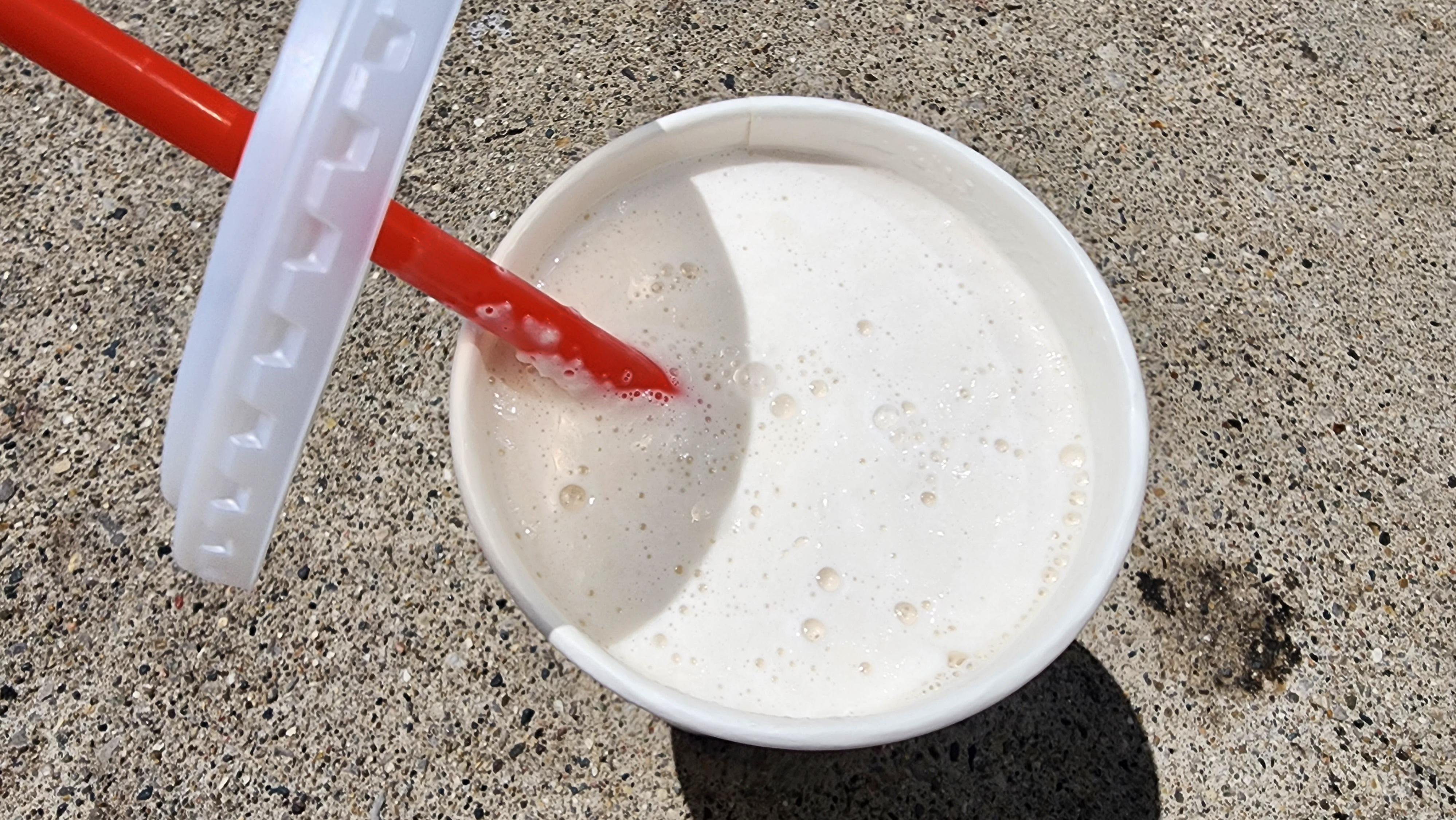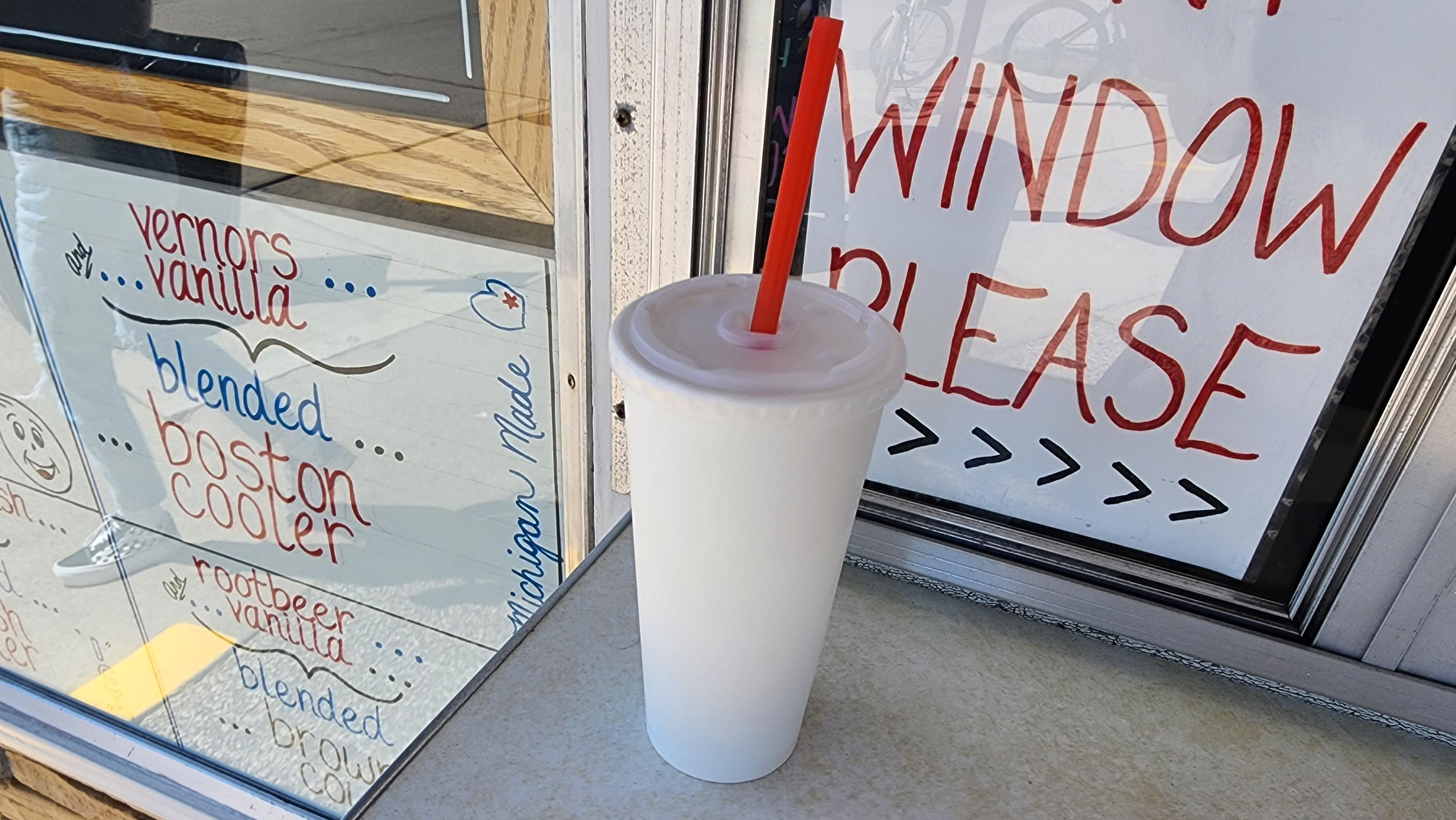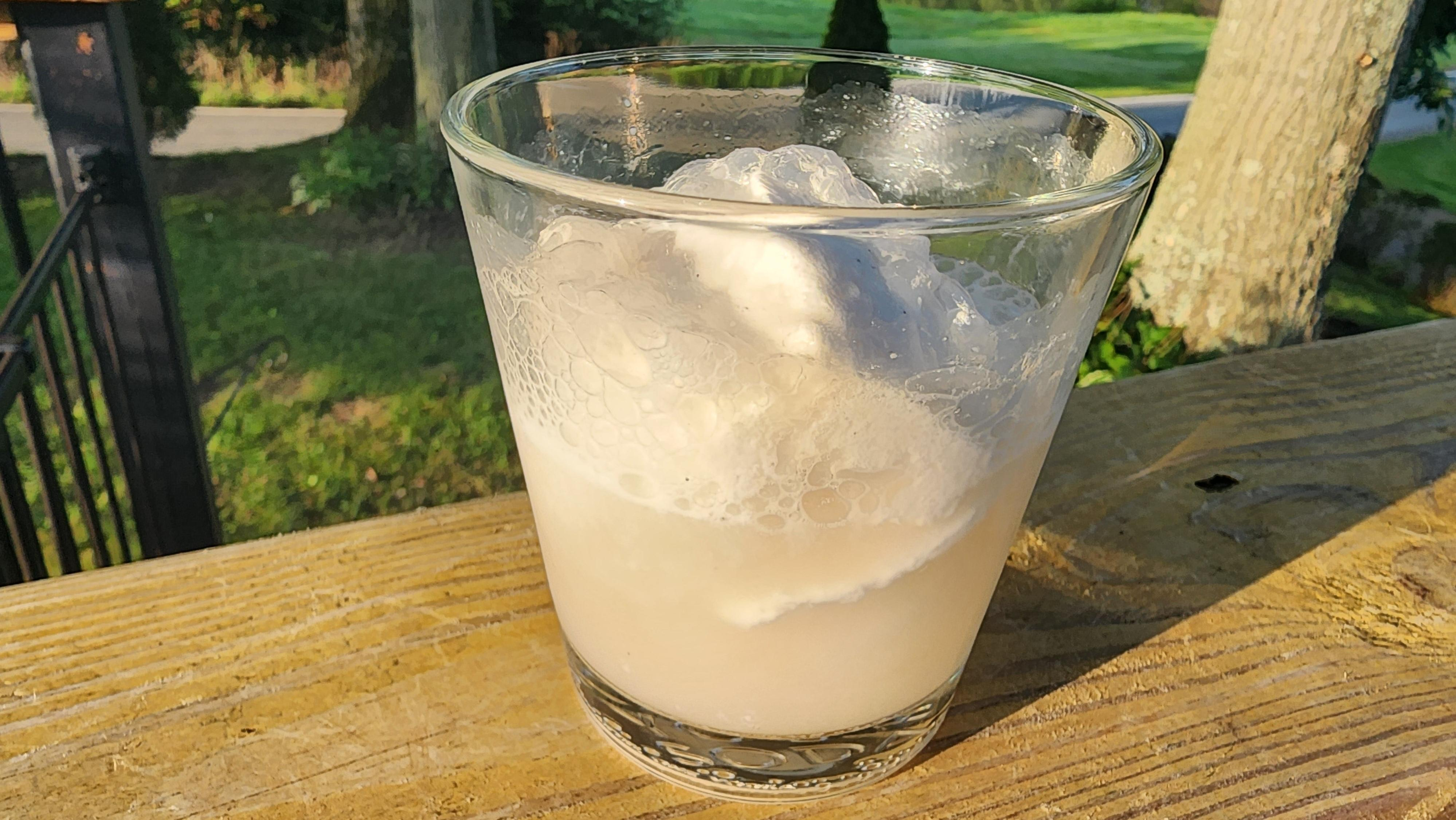Enjoy A Late Summer Boston Cooler
The Detroit classic is made with Vernors ginger ale and vanilla ice cream.
The Boston Cooler is not a float; it's a milkshake. Kind of.
That's depending on who you ask, because this classic Detroit treat is the subject of much debate. The Boston Cooler is a frozen, milkshake-adjacent drink that's usually blended but sometimes served with chunks of vanilla ice cream. It is always made with Vernors brand ginger ale. That's what makes it a Boston Cooler, and there are even those who believe the shake has to be made with Stroh's ice cream, another Detroit invention.
So what's "Boston" about the Boston Cooler's amalgamation of ice cream and pop*? Nothing, actually. The name is allegedly due to Boston Boulevard's close proximity to Dr. Vernor's original soda fountain. Yes, for those who didn't know, Vernors ginger ale was created by a licensed pharmacist and first served to the public in 1866. Sweet, sugary medicine.
How this pungent, peppery soft drink first came into contact with vanilla ice cream is a mystery, but there's one thing we do know: The combination works thanks to Vernors, a top-tier ginger ale.
*Note: For this article I will be using the preferred Michigan nomenclature "pop" and not "soda."
Why Vernors ginger ale is so good
Vernors has an inherent creaminess and a tad more vanilla than your average ginger ale. If it were labeled as "ginger cream soda," that would be apt. On its own, Vernors is a smooth yet potent mix of spice and carbonation, both of which bite and sting like a good ginger ale should. And it's sweeter than the other brands, too, with 38 grams of sugar per serving versus Schweppes' 33 grams and Canada Dry's 35.
Sweet, creamy, sharp, and spiced—all qualities that pair well with vanilla ice cream. Vernors adds an extra layer of excitement to a traditional root beer float.
The Boston Cooler, explained
Perhaps the biggest point of controversy is how the Boston Cooler is made. Per local news website Michigan Live:
Some folks believe a Boston Cooler is just Vernors and vanilla ice cream — like a root beer float that swaps in Vernors for the root beer. But many more people say the key to a true Boston Cooler is that it must be blended, like a milkshake.
I got a Boston Cooler from Dairy Deluxe in Birmingham, Michigan (minutes outside of Detroit), and it came blended. Still, it wasn't a completely smooth mixture; there were small, cottage-cheese-like chunks of vanilla ice cream floating throughout. Although these bits were easily sucked up through a straw, the Boston Cooler being a two-ingredient concoction of ice cream and pop means that it will always retain float-like qualities; it'll never fully be emulsified like a traditional milkshake, but it comes pretty close.
Ultimately, blending the ginger ale and ice cream feels crucial; it just makes more sense to combine these flavors as thoroughly as possible. Otherwise, you're left with watery spoonfuls of ginger ale and chunks of wet ice cream. To test this, I made a BC without blending, and my suspicions were confirmed.
Eating spoonfuls of ginger ale, even Vernors, is just not all that appetizing. It feels like taking actual medicine—the original intention of Dr. Vernor's barrel-aged ginger ale of the late 19th century. The Boston Cooler does not work as a float. To play to both Vernors' and Stroh's strengths, the beverage must be blended. It's definitely not a milkshake, since there's no milk. Instead, the Boston Cooler is the very definition of modern Detroit itself: disparate local traditions that come together to form an inexplicably enticing experience.
Ice cream floats are seemingly long forgotten, outshone by boutique dairy brands and funky flavors, but the Boston Cooler makes a strong case for their resurgence. Now I want an orange creamsicle float, a purple cow, a float with tamarind Jarritos, and a classic birch beer float. The Boston Cooler reminds us that pop and ice cream have a lasting partnership, and it's one worth celebrating.


